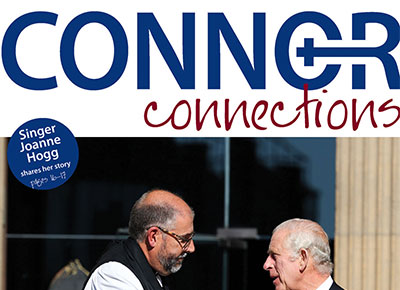Church and Society Commission response to proposals for laws permitting assisted suicide

The Church and Society Commission of the Church of Ireland has produced a resource for members of the Church regarding the sensitive issues that arise in relation to the end of human life.
The resource, ‘Care for Every Moment of Life,’ is available for printing and sharing in parishes and can be downloaded HERE.
The full text of the resource can be read below:
Over recent months, members of both Dáil Éireann and the House of Commons have introduced proposals for legislation intended to legalise assisted suicide.
We understand the powerful emotions involved in any discussion of the issues involved and that the proposals are put forward in good faith, and with good intentions. We recognise that all involved in this discussion have a genuine concern and compassion for those who are suffering, watching another suffer or who are living in fear of a lingering, painful death. We believe firmly that anyone coming to the end of their natural life should have the greatest possible care to help them live out their remaining time with dignity, minimising their pain or suffering. What we do not accept is that legislating for assisted suicide is the best way to help those suffering.
‘And all of us, with unveiled faces, seeing the glory of the Lord as though reflected in a mirror, are being transformed into the same image from one degree of glory to another, for this comes from the Lord, the Spirit.’ 2 Corinthians 3:18
Life’s value as a gift
As Christians we believe that all life is created in the image of God, as a gift from Him, and has intrinsic value, regardless of who we are, our personal circumstances and our abilities and limitations. If we accept that, in some cases, there are those who by means of age, disability or illness would qualify for assisted suicide, have we not judged their life to have less value? How can they be expected to see meaning and value in their own life if we accept that this value somehow depends on a person’s health or their stage in life?
As the overall age of the population moves upwards, there are often understandable concerns and discussions around the economic consequences of caring for the elderly for the rest of the population. So common is this talking point that we can lose sight of how this framing devalues and depersonalises older people. No longer contributing to the workforce and so past their useful economic lifespan, they become, even if only in the abstract, perceived as a burden.
The social pressure that this creates is not direct, but it is real, and it is insidious. Amid a housing crisis and times of economic uncertainty, the social pressure that this puts on older people is immense, as we subconsciously tell our elders that perhaps things would be better for their families if they simply moved on. Our faith requires us, as Christians, to protect the vulnerable, the poor, the orphan and the widow. If we allow our society to create pressure, albeit inadvertently, on anyone who is vulnerable to end their lives, we fail in that duty.
Changing boundaries
When lawmakers elsewhere have legalised assisted suicide, they have found time and again that it is incredibly difficult to maintain and enforce legal and ethical boundaries. Laws written with great care are still found lacking and parliaments and assemblies find themselves allowing wider and wider criteria, as occurred, for example, in both Canada and Columbia in a relatively short period of time.
The surest safeguard in law for our lives and the lives of others, especially the most vulnerable, is ‘do not kill.’ It should also be recalled that there is no legally recognised human right to assisted suicide, despite many years of litigation in the European Court of Human Rights. Indeed, that court has recently rejected a human rights claim in this very context, stressing that the wider social implications and risks of abuse and error in the provision of assisted suicide were to be weighed heavily in the balance (Karsai v. Hungary, September 2024).
Trust
Introducing assisted suicide marks a radical change in the doctor-patient relationship and in the duties of the doctor. We risk damaging the essential trust between doctor and patient. Can a patient who might meet the criteria for assisted suicide trust in the care they will receive? Must the doctor who serves a patient who wishes to kill themselves always accept that this choice is correct?
We do not accept that legislating for assisted suicide will inevitably reduce suffering. The only inevitability of such legislation seems to be its progressively widening scope. Instead, our governments should work to ensure the best possible palliative care is available to all regardless of their location or financial situation, so that no-one need to fear suffering in death. We also acknowledge that the Church of Ireland has an important role to play in the provision of pastoral and spiritual support for those facing what may feel like an impossible burden of suffering.
‘So God created humankind in his image, in the image of God he created them; male and female he created them.’
Genesis 1:27
© Copyright The Church of Ireland Diocese of Connor 2026 | Web Design by LD2.digital




